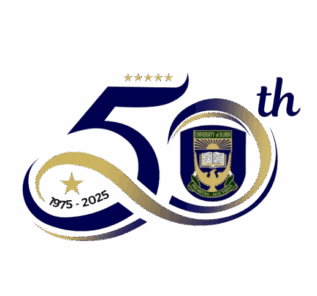By Tajudeen Babamale
Literary icon and Nobel Laureate, Prof. Wole Soyinka, has advised African writers, especially those in the Humanities, to focus on their craft rather than being distracted by the pursuit of awards and recognitions.
Prof. Soyinka gave this advice during an interactive session with students and selected staff of the University of Ilorin last Tuesday (May 20, 2025) as part of the institution’s maiden cultural week celebration.
According to the world renowned playwright, literary awards, including the Nobel Prize, often involve 80 percent of luck, as they are subject to the personal preferences and biases of judges.
He said, “They have their prejudices and fantasies, which they like to be presented to them. Ignore it, and one day you’ll be surprised that while sitting down, eating your amala and ewedu, a call will come to say the prize is yours”.
Sharing insights from his personal journey, Prof. Soyinka reflected on his own surprise at receiving the Nobel Prize, noting that he initially did not believe the announcement. “There are institutes that are entitled to nominate future recipients. When I was teaching at Harvard, I came under that group because Harvard University was one of the authorised institutions. I certainly never believed that I would get a nomination, and when the prize came, I refused to believe it, as I thought it was another speculation by Nigerian enthusiasts”.
Prof. Soyinka, who received the Nobel Prize for Literature in 1986, urged writers to treat rejections as part of the journey. He suggested that writers should keep writing, learn from their rejections, and use them as an opportunity to improve their work.
He also encouraged them to share their work with others, be patient with their ideas, and not be obsessed with prizes, noting that recognitions may come unexpectedly if they continue to write.
While answering a question on a broader cultural context and concern for the younger generation, Prof. Soyinka described them as endangered due to overreliance on digital technology.
The Nobel Laureate observed that while the internet has facilitated significant political and social movements, like the Arab Spring, it also presents a challenge to African youths who often adopt the technology without fully understanding its impact.
He said, “They don’t know it, but they are a seriously endangered generation. Look at what’s coming out of Africa today in the artistic world. This continent is producing a new crop of writers and artists, especially women. The women emerging from Nigeria alone these days are among the best anywhere in the world. Nothing wins one’s heart more than encountering this generation of young people, not just in the arts, but also in technology, mathematics. Look at those who are creating programmes for cybernetic applications, for commercial companies, and sometimes just on their own initiative. It’s a mixed bag. Unfortunately, the greatest users of this new technology are the younger generations, who often think they’re at the pinnacle of global knowledge and capability. Perhaps we’re viewing them from our own distant perspective”.
Reflecting on his deep relationship with language and how he acquired knowledge, the international scholar traced his fascination with words to childhood.
He said, “I am fascinated by languages. When I was studying for my degree, my curiosity led me to take one of my minor courses in linguistics itself. I was just fascinated by the ability of humans to change sounds in different languages. In school, I studied Latin at Government College, Ibadan. When I went to the University of Ibadan, then University College Ibadan, one of my subjects was Greek. I grew up with Yoruba, which is most important to me. I was excited by the paratechnique of novelist Daniel O. Fagunwa to the extent that I translated three of his Yoruba novels into English literature. I wanted to see if I could transmit the richness that I enjoyed in Fagunwa’s books into another language.
Speaking further, he said, “And of course, I enjoy listening to elders telling stories and adorning the stories with songs. It’s just something I can’t explain, except for the fact that I love the sound of words from my childhood and the manipulation of words. For those of us who come from tonal languages like Yoruba, one syllable given different tonality can mean about five different things. It’s like magic to me. I was just fortunate that I grew up within a culture that values languages, and that’s why we must never abandon or diminish our indigenous languages in any way.”
